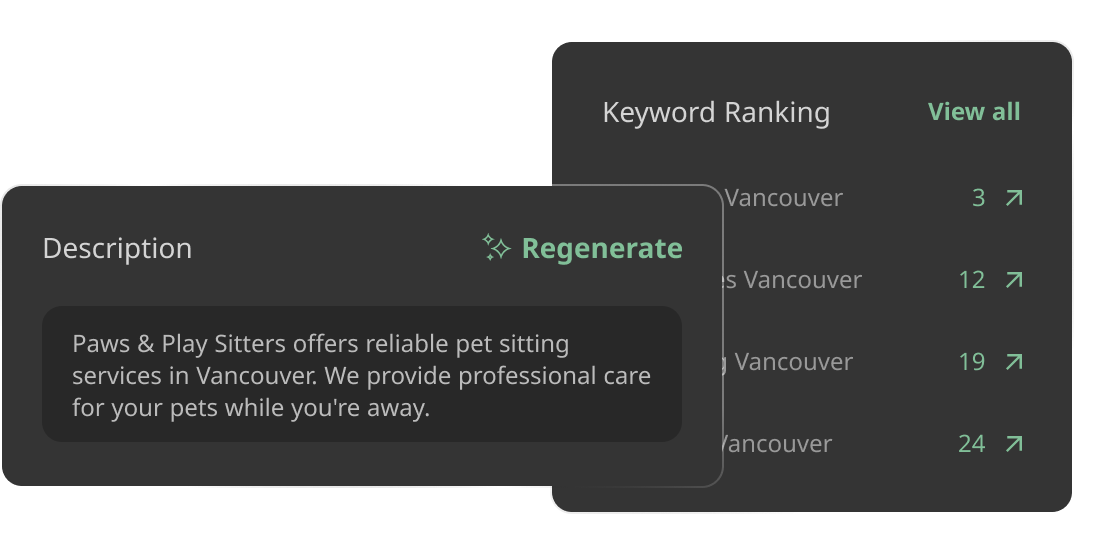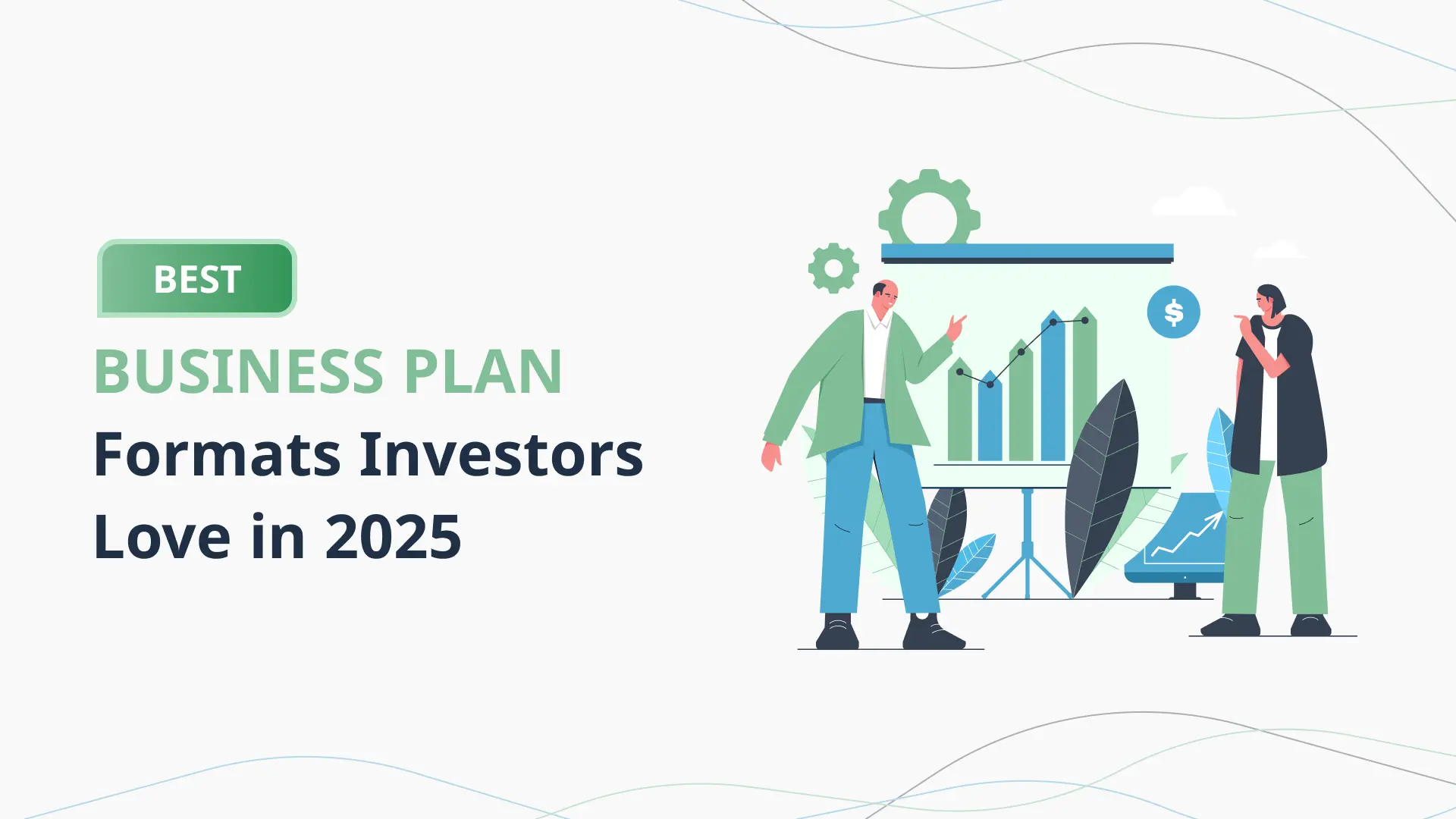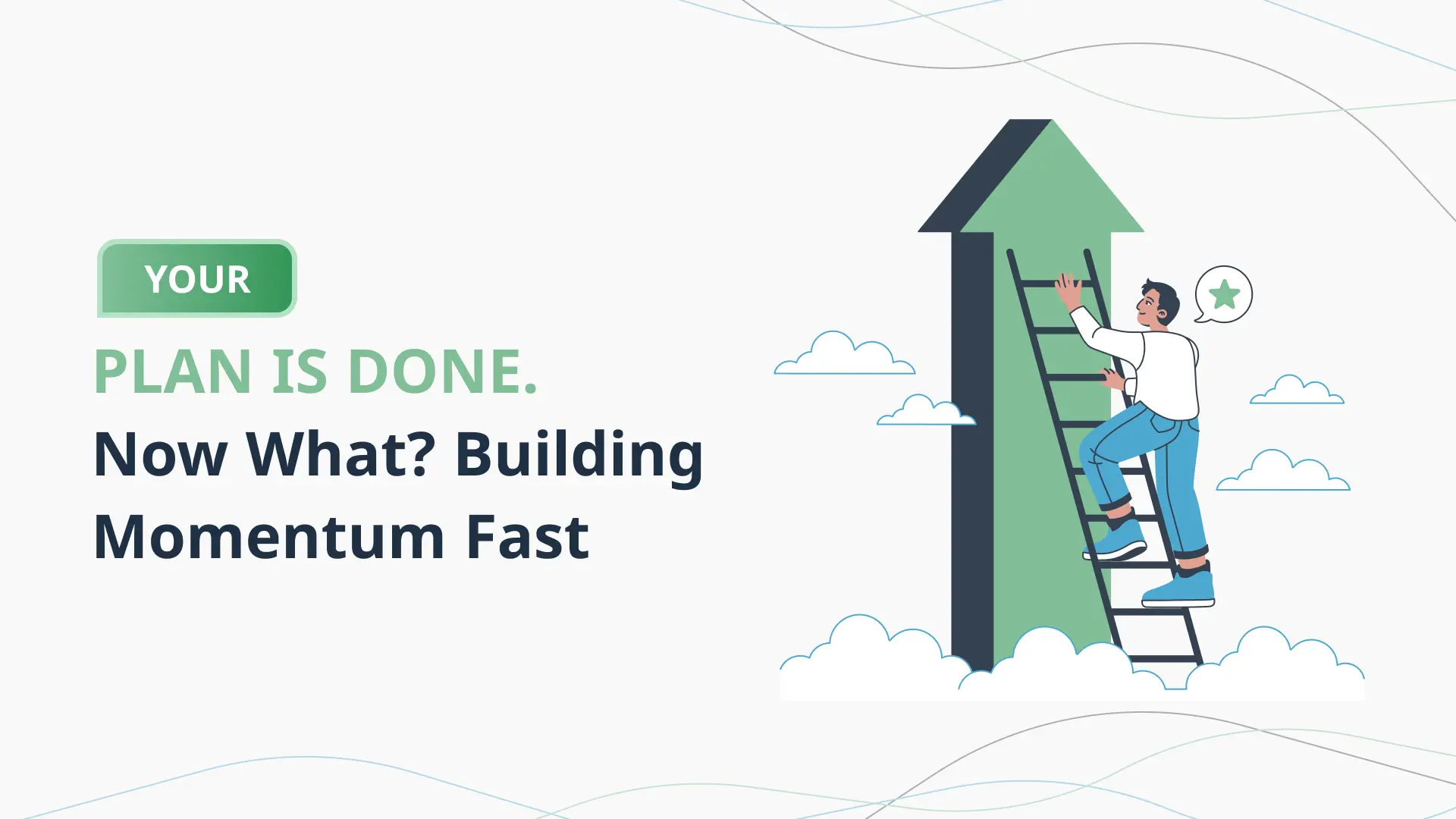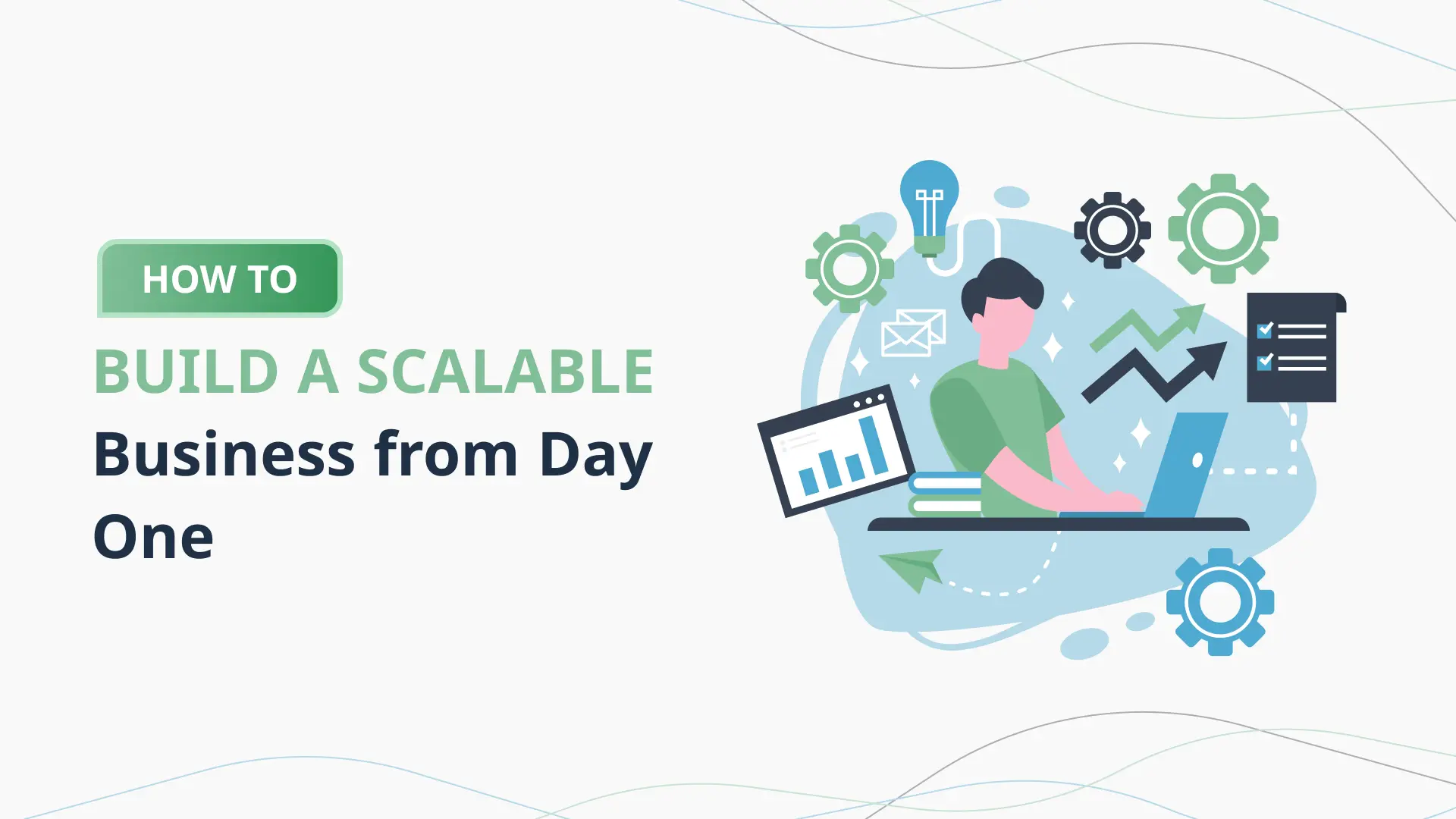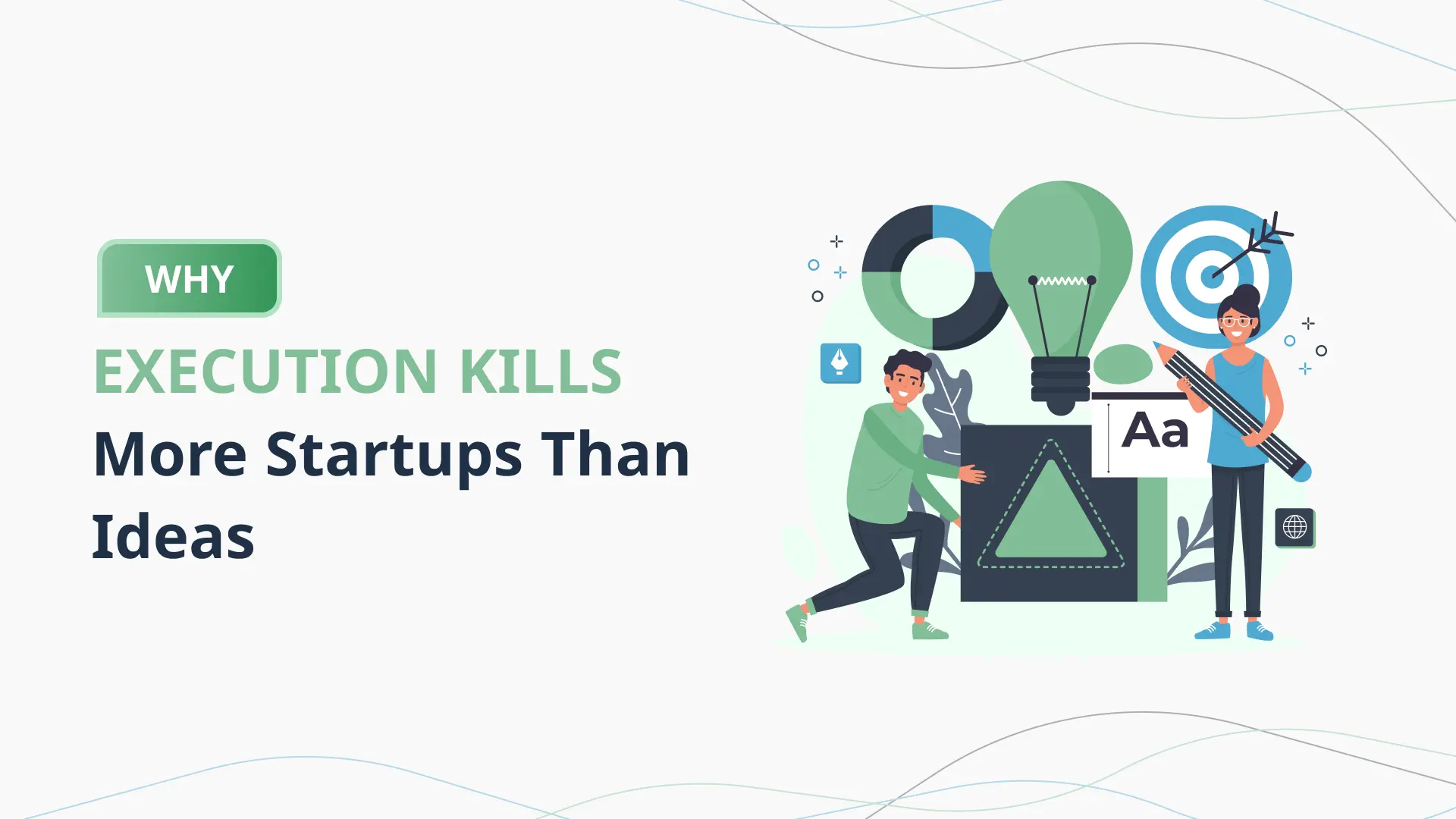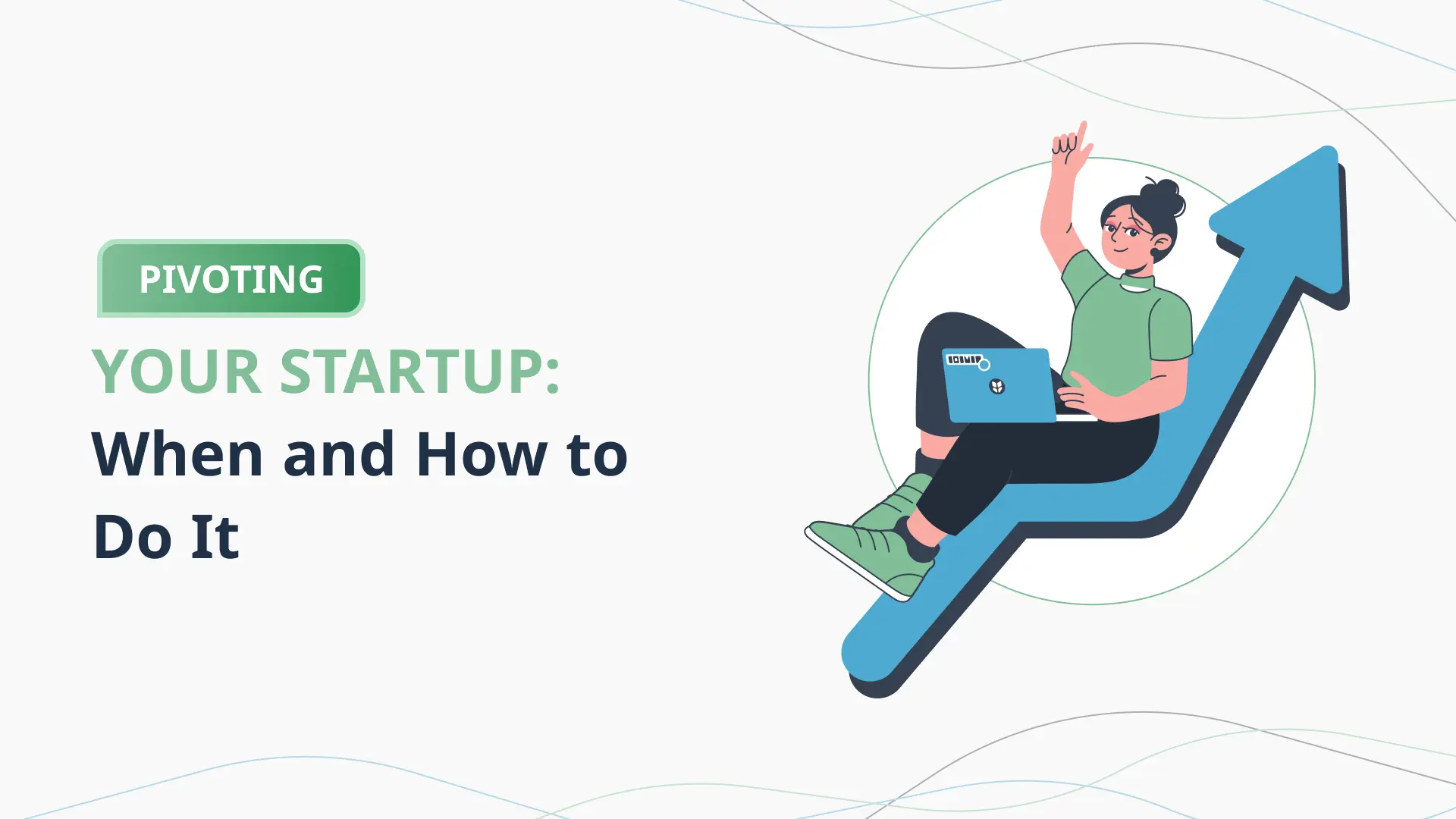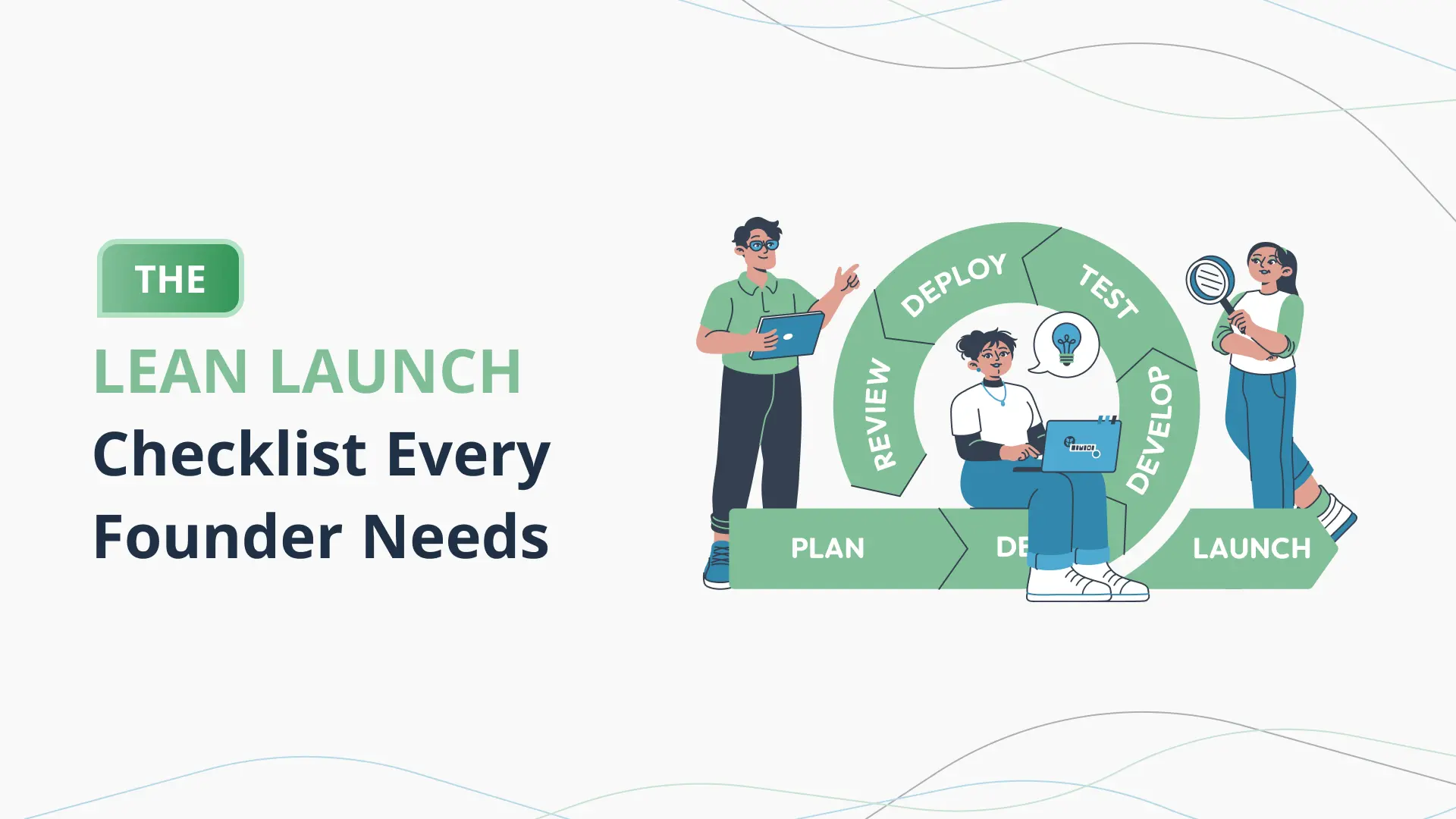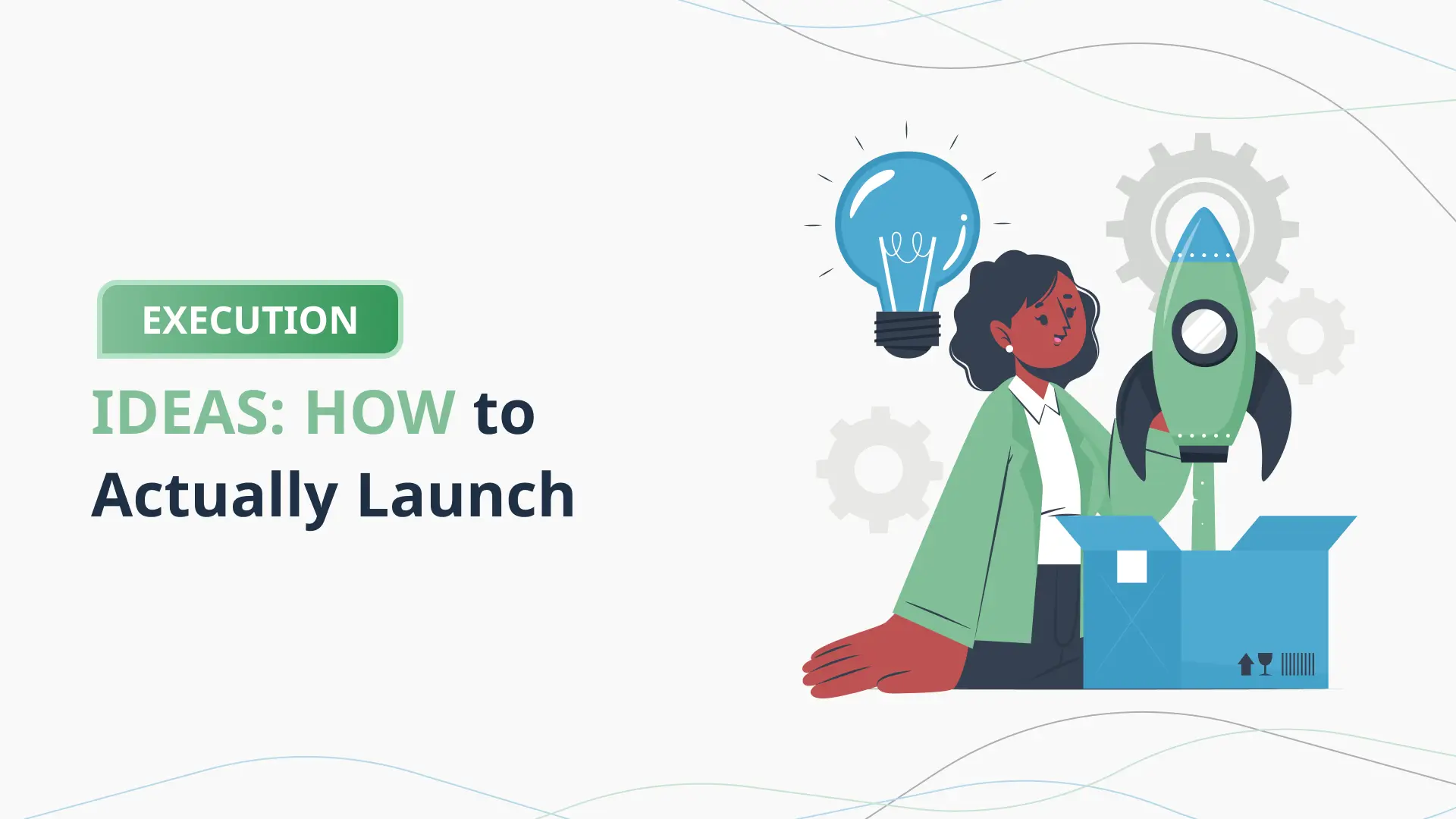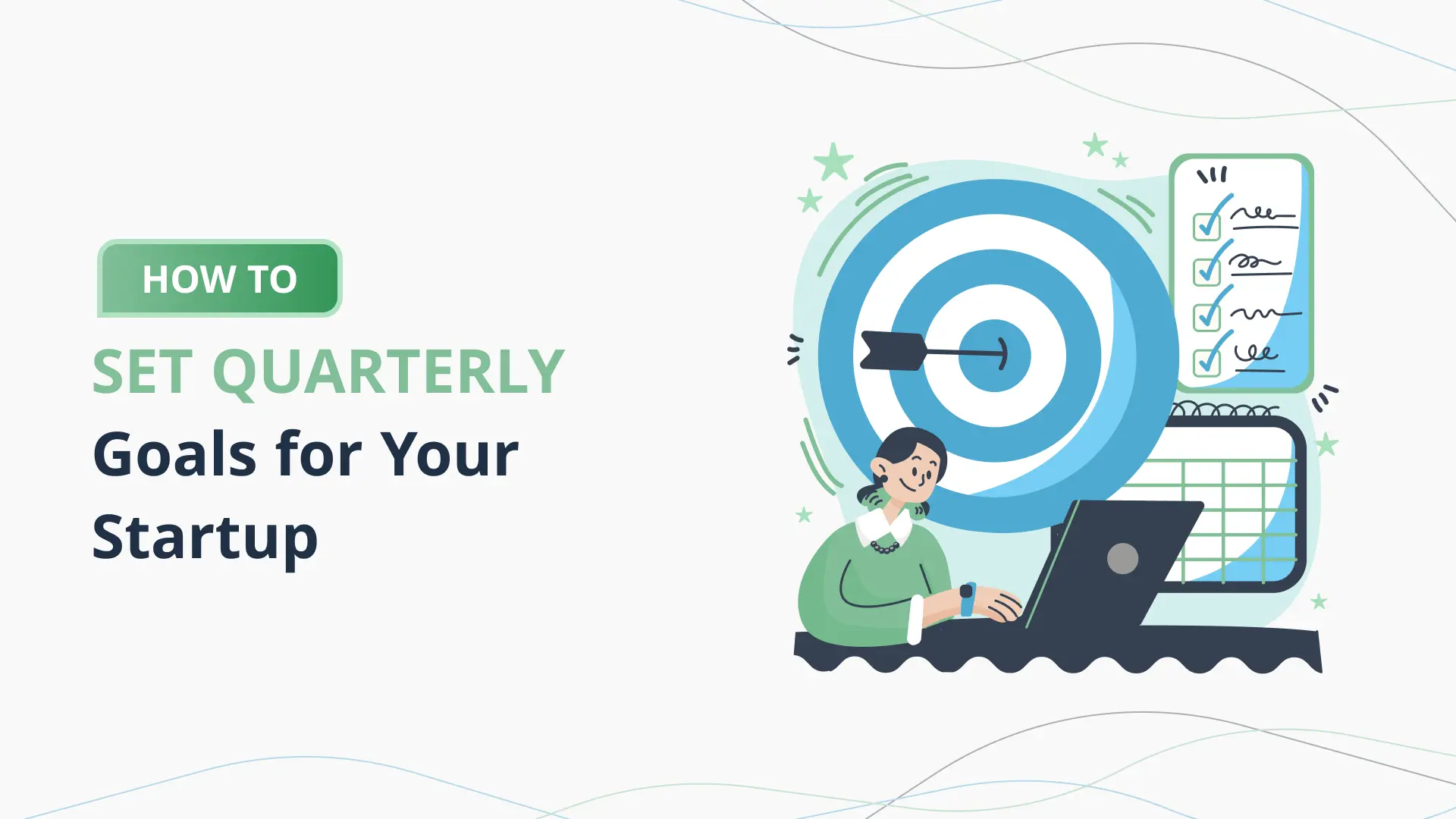Why Smart Founders Use AI for Business Planning
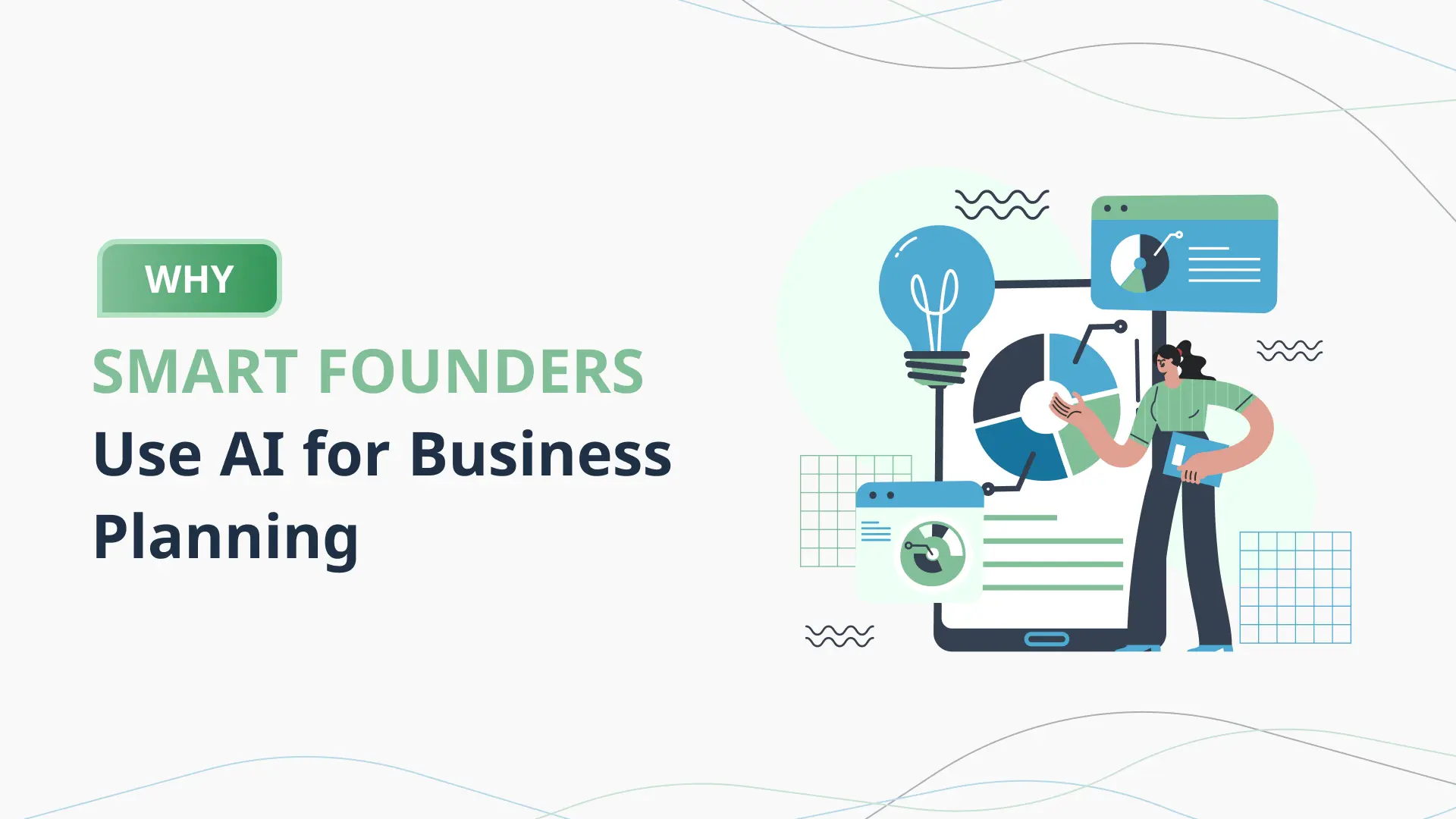
Introduction
The startup world is fiercely competitive, fast-moving, and constantly evolving. For founders, the ability to think strategically, adapt quickly, and stay ahead of the curve is more than a skill—it’s a survival tactic. But one of the most critical and often overlooked tools in a founder’s arsenal is the business plan. Traditionally, crafting a business plan has been a painstaking process involving spreadsheets, long market research sessions, and static projections. In a landscape where every minute counts, these traditional methods no longer cut it.
Enter Artificial Intelligence (AI). What was once a buzzword is now a powerful, practical resource for entrepreneurs. AI-driven business plan tools are helping founders plan smarter, move faster, and make decisions with more confidence. From automating financial projections to analyzing market trends and identifying growth opportunities, AI is transforming how startups build their roadmaps.
Smart founders are leveraging this shift. They’re using AI not just to create business plans, but to craft living, breathing documents that adapt in real time and provide actionable insights. The shift from static planning to AI-enhanced strategic thinking is creating a new breed of entrepreneurs—those who understand that tech isn’t just for building products, it’s also for building the business behind the product.
In this blog, we’ll explore how AI is reshaping the business planning process. We’ll dive into real-world use cases, unpack the challenges of traditional planning, and highlight the tangible benefits of using AI. We’ll also introduce you to PlanVista, a cutting-edge AI business plan generator designed to give startups a competitive edge. Whether you’re just starting or scaling up, understanding how AI fits into your planning process can be the game-changer you need.
The Evolution of Business Planning
Business planning has long been a cornerstone of entrepreneurial success. Historically, it involved meticulous documentation—executive summaries, market analysis, financial projections, and operations plans—often compiled into a bulky document meant to impress banks or investors. These plans were usually created in Microsoft Word or Excel, relying heavily on static data and a founder’s best guesses. While these documents served their purpose, they were time-consuming, rigid, and often outdated before the ink dried.
Fast forward to the digital age, and the landscape began to shift. The introduction of planning software like LivePlan and Bizplan brought structure and ease of use, helping founders organize their thoughts more efficiently. Still, these tools required users to do the heavy lifting: entering all the data manually, performing their own market research, and crunching the numbers themselves. They provided a platform, not a partner.
Now, we’re witnessing a new revolution in business planning, driven by Artificial Intelligence. AI doesn’t just support planning—it transforms it. Modern AI-powered platforms like the PlanVista app are redefining what business planning can look like by turning static documents into dynamic, interactive systems. These tools can digest enormous amounts of market data in seconds, automatically adjust financial models, and even offer strategic recommendations based on current trends.
Today’s founders don’t need to guess how market trends might affect their forecasts. With an AI business plan tool, they get real-time analytics and data-driven suggestions. Imagine launching a fashion e-commerce startup. Instead of manually compiling demographic data and market trends, your AI tool gathers that information for you and suggests product niches that are trending upward. It’s smarter planning, delivered faster.
This evolution from manual to intelligent planning is not just about convenience. It’s about capability. AI democratizes access to high-level strategic thinking, once reserved for MBAs and consultants. Startups can now compete on a more level playing field, armed with the same quality of insights that large companies pay thousands for.
Moreover, the shift is helping business plans stay relevant. Rather than being a one-time document tucked away in a drawer, AI-generated plans evolve as your business grows. Want to test the impact of raising prices or entering a new market? Your AI startup planning tool runs the numbers instantly and updates your forecasts accordingly. That’s agility that static planning can’t match.
AI’s role in business planning marks a pivotal moment for entrepreneurship. It’s a shift from labor-intensive creation to insight-driven strategy, and it’s giving rise to a smarter generation of founders. Whether you’re launching your first venture or refining your third, understanding this evolution isn’t just informative—it’s essential.
Real-World Applications of AI in Business Planning
AI is no longer a futuristic fantasy—it’s here, and it’s radically improving how entrepreneurs build and execute their business plans. From market analysis to financial forecasting, AI brings speed, precision, and intelligence to every facet of planning. Here’s how smart founders are already using AI tools to reshape their businesses.
1. Market Research and Competitive Analysis
Traditionally, market research required endless hours scouring reports, industry news, and customer feedback. Today, AI tools automatically gather and synthesize this data, delivering insights in seconds. A founder can enter their business concept into an AI business plan generator, and the tool pulls in the latest industry trends, competitor data, and customer sentiment from across the web. This isn’t just time-saving—it provides a data depth that manual research could never match.
Take, for example, a SaaS founder entering the health tech space. An AI-driven platform like PlanVista could analyze thousands of health tech startups, assess market gaps, and suggest underserved niches or high-growth customer segments. This level of strategic clarity can be the difference between success and failure in a crowded market.
2. Dynamic Financial Forecasting
Financial modeling has long been one of the most complex parts of business planning. With AI, it’s now one of the most powerful. AI tools can simulate multiple business scenarios—best case, worst case, and everything in between—based on real-time economic data, seasonality trends, and even consumer behavior.
Imagine a coffee subscription startup trying to determine pricing strategies. An AI business plan tool could simulate how different pricing tiers impact revenue, churn rate, and lifetime customer value. With real-time updates, founders can make financially sound decisions backed by live data, not stale spreadsheets.
3. Personalized Business Models
Every startup is different. AI understands this and adapts planning accordingly. Rather than offering a one-size-fits-all template, AI planning tools use input data to generate customized plans tailored to your industry, size, and stage of growth. PlanVista, for example, asks founders key questions about their business model and automatically adjusts projections, marketing strategies, and operational plans to align.
This personalization extends beyond content—it informs strategy. A D2C skincare brand might receive marketing recommendations based on influencer trends, while a B2B SaaS platform could get lead generation strategies optimized for LinkedIn campaigns.
4. Continuous Plan Optimization
The startup journey is rarely linear. Markets shift, customer needs evolve, and founders pivot. AI tools accommodate this by constantly refining business plans. Add a new revenue stream? The plan updates. Change your target market? AI revises customer profiles and adjusts sales strategies accordingly.
This adaptability turns your business plan from a static document into a living strategy hub. It empowers founders to make proactive decisions instead of reactive ones.
In short, AI is not just helping founders plan—it’s helping them plan better, faster, and smarter. By integrating AI tools into their business planning process, entrepreneurs gain a critical edge, making decisions rooted in data, not guesswork.
Challenges in Traditional Business Planning
Despite being a foundational element of entrepreneurship, traditional business planning is often riddled with inefficiencies and limitations. For many founders, especially those building a startup from the ground up, the conventional process of drafting a business plan can be more of a burden than a blueprint. Understanding these challenges is key to appreciating the game-changing potential of AI business plan tools.
1. Time-Consuming and Resource-Heavy
Creating a traditional business plan demands significant time and effort. From conducting market research to drafting forecasts and creating financial statements, every step involves manual labor. This is especially daunting for solo founders or small teams juggling multiple roles. The process can drag on for weeks, if not months—valuable time that could be spent developing products, acquiring customers, or refining business models.
2. Static Documents in a Dynamic World
Markets change rapidly. Consumer behavior shifts, competitors emerge, and economic conditions fluctuate. Yet traditional business plans are static by nature. Once created, they’re rarely updated. As a result, many business plans become outdated long before they’re put into action, making them less useful for real-time decision-making.
For example, a startup that planned to enter a particular niche may find the market saturated six months later. A static plan won’t reflect this shift, potentially leading to costly strategic missteps.
3. Limited Data Access and Analysis
Traditional planning often relies on small datasets—surveys, industry reports, or gut instincts. Without the means to process large volumes of data, many entrepreneurs make decisions based on incomplete or outdated information. This limits their ability to anticipate market trends, understand customer behavior, or optimize pricing strategies effectively.
In contrast, AI tools can digest thousands of data points in seconds, offering a broader, deeper, and more accurate view of the business landscape.
4. Subjectivity and Cognitive Bias
Founders are passionate about their ideas—but that passion can cloud judgment. Traditional business planning often suffers from confirmation bias, where data is interpreted in ways that support preconceived beliefs. Over-optimism in revenue projections or underestimating competition are common pitfalls. Without an objective, data-driven system to challenge assumptions, these biases can seep into core planning decisions.
AI mitigates this by offering neutral, data-backed insights, challenging founders to see blind spots and adjust strategies accordingly.
5. Lack of Accessibility and Scalability
High-quality business planning often requires financial expertise or access to consultants—resources not all founders can afford. Furthermore, as a business grows and evolves, updating a traditional plan to reflect new realities can become cumbersome. Each new version requires fresh data entry, recalculations, and formatting, making scalability a major pain point.
This is where tools like the PlanVista app shine. As an AI business plan generator, PlanVista streamlines updates, scales effortlessly with your business, and makes professional-grade planning accessible to everyone, regardless of experience or background.
Benefits of AI-Driven Business Planning
AI isn’t just a convenience—it’s a catalyst. When applied to business planning, artificial intelligence empowers founders with insights, agility, and precision that traditional methods simply can’t match. Whether you’re crafting a pitch for investors, mapping out financial forecasts, or pivoting your strategy, AI-driven planning tools offer clear, compelling advantages.
1. Speed and Efficiency
Perhaps the most immediate benefit is speed. What used to take weeks—researching competitors, modeling finances, drafting narratives—can now be done in hours with an AI business plan generator. PlanVista, for example, guides users through step-by-step questions and instantly produces a polished, investor-ready business plan. This allows founders to shift focus from paperwork to execution, speeding up time-to-market and increasing agility.
2. Real-Time Adaptability
The startup world moves fast. AI tools offer real-time adaptability by updating forecasts, strategies, and goals based on new data. Whether it’s a sudden spike in competitor activity or a change in customer behavior, AI systems can analyze the shift and suggest strategic pivots instantly. This adaptability transforms the business plan from a static document into a living, responsive guide.
Imagine launching a meal delivery startup. If local competitors begin offering similar services at lower prices, your AI startup planning tool could suggest differentiators, pricing strategies, or marketing tweaks based on live market trends.
3. Improved Accuracy and Forecasting
AI doesn’t guess—it calculates. By analyzing vast amounts of historical and real-time data, AI tools improve forecasting accuracy. They take into account seasonal trends, economic indicators, and consumer behavior, giving you more reliable financial projections and reducing the risk of strategic missteps.
Founders can simulate various scenarios—optimistic, pessimistic, and realistic—and plan accordingly. This level of depth isn’t feasible with manual tools and sets AI-powered platforms like PlanVista apart.
4. Personalization at Scale
AI platforms don’t just spit out generic business plans. They tailor each plan to your unique business model, industry, and growth stage. Whether you’re building a fintech app or a boutique clothing brand, an AI business plan tool adapts its recommendations and formatting accordingly. You get relevant KPIs, competitive benchmarks, and operational strategies designed for your niche.
This personalization ensures your plan resonates with investors, partners, and your internal team, making it more actionable and credible.
5. Cost-Effective Planning
Hiring consultants or financial analysts can be expensive. AI offers an affordable alternative, delivering high-quality insights without the hefty price tag. This democratizes business planning, allowing solo entrepreneurs and small teams to access the same level of strategic guidance that big-budget startups enjoy.
6. Enhanced Collaboration
Modern AI tools are built for teams. They enable collaborative planning by allowing multiple users to edit, comment, and iterate in real time. With PlanVista’s collaboration features, co-founders, advisors, and financial officers can contribute simultaneously, ensuring alignment across departments and improving decision-making.
PlanVista: Revolutionizing Business Planning
While AI-powered tools are reshaping the way business planning is done, not all platforms are created equal. Among the rising stars in this space, PlanVista stands out as a powerhouse designed to meet the real-world needs of modern entrepreneurs. With a blend of smart algorithms, intuitive design, and practical features, PlanVista isn’t just another tool—it’s a complete business planning partner.
1. Intelligent Business Plan Generator
At its core, PlanVista is an advanced AI business plan generator that takes your ideas and transforms them into structured, strategic, and investor-ready documents. Founders no longer need to start from scratch or Google “how to write a business plan.” PlanVista walks users through a series of tailored questions, then compiles their responses into a fully formatted business plan with market analysis, competitive positioning, financial projections, and more.
2. Real-Time Data Integration
PlanVista doesn’t rely on guesswork or outdated templates. It integrates live market data and benchmarks specific to your industry. Whether you’re entering renewable energy, launching a tech startup, or creating a subscription box service, PlanVista pulls relevant insights from real-time databases to keep your plan current and competitive.
For example, if you’re building a fintech app, PlanVista can analyze fintech trends, regulatory updates, and competitor activity to suggest tailored strategies and financial models.
3. Financial Modeling That Makes Sense
Many founders struggle with financials. PlanVista’s built-in financial modeling tools remove the intimidation factor. It automatically generates income statements, balance sheets, and cash flow forecasts based on your business inputs and assumptions. More importantly, it allows you to tweak variables like pricing, customer acquisition cost, and growth rate—and instantly see how those changes affect your bottom line.
This capability enables smarter decision-making before money is spent or resources are committed.
4. Beautiful, Professional Outputs
A great business plan needs more than solid content—it needs presentation. PlanVista produces clean, visually appealing documents that impress investors and stakeholders. Charts, graphs, and data visualizations are integrated seamlessly, helping communicate complex ideas with clarity.
The result? A plan that’s not only smart but also investor-ready.
5. Built for Teams
Startups are rarely solo journeys. That’s why PlanVista offers collaboration features that make planning a team effort. Founders, advisors, marketers, and CFOs can all contribute in real time, leave comments, and track changes. This collaborative environment helps teams stay aligned and build stronger, more cohesive strategies.
6. Affordable and Scalable
Perhaps one of PlanVista’s most compelling strengths is accessibility. It’s designed to be a startup planning tool that’s powerful enough for high-growth businesses but affordable enough for bootstrapped founders. And as your business grows, PlanVista scales with you—whether you’re expanding to new markets, adding product lines, or preparing for funding rounds.
Conclusion
Business planning is no longer about creating static documents for the sake of ticking investor boxes. It’s about building a living strategy that grows with your business. In today’s fast-moving startup ecosystem, founders can no longer afford to rely on outdated methods or gut instinct alone. They need speed, precision, and adaptability—and that’s exactly where Artificial Intelligence shines.
AI has fundamentally redefined what it means to plan. It enables entrepreneurs to work smarter, not harder—transforming a once time-consuming and error-prone task into a streamlined, insight-driven process. AI-powered business plan tools can pull live market data, forecast financial outcomes, suggest competitive strategies, and adjust plans in real time. This is the new standard of strategic planning, and smart founders are getting ahead by embracing it.
The benefits are clear: faster execution, better decision-making, and deeper insights at every stage of the business lifecycle. With AI, you’re not just creating a plan—you’re building a foundation that reacts, learns, and evolves alongside your startup. Whether you’re seeking funding, scaling operations, or testing a new market, your AI-enhanced plan becomes your most valuable asset.
Enter PlanVista.
Designed with modern entrepreneurs in mind, the PlanVista app combines cutting-edge AI with an intuitive interface to make world-class business planning accessible to everyone. It offers real-time adaptability, automated financial modeling, industry-specific templates, and powerful collaboration features. Whether you’re a solo founder or a growing team, PlanVista transforms your ideas into actionable strategies that investors can trust and you can execute with confidence.
Don’t just write a business plan—build one that works for you. Whether you’re launching your first product, entering a new market, or preparing for a seed round, PlanVista gives you the edge you need to move forward faster.
Now is the time to elevate your business planning.
Try PlanVista today—and start building smarter, sharper strategies with the power of AI at your side.
FAQs
An AI business plan tool uses artificial intelligence to automate and enhance the creation of business plans, offering real-time insights, financial forecasting, and strategic recommendations.
AI streamlines planning by automating research, providing accurate forecasts, and adapting plans to market changes, making the process faster and more data-driven.
Yes, PlanVista is designed for founders at all stages, offering user-friendly features and affordable pricing that cater to startups just getting off the ground.
Absolutely. AI-generated plans are professional, data-backed, and investor-ready, making it easier to communicate your strategy and build credibility.
PlanVista combines AI intelligence, real-time market data, financial modeling, and collaborative features in one intuitive platform tailored specifically for startups.
